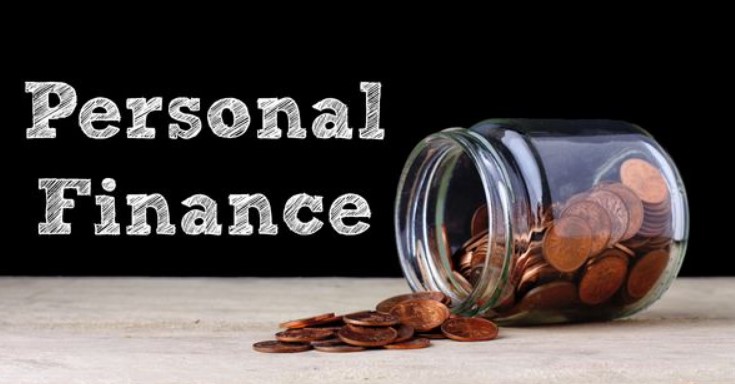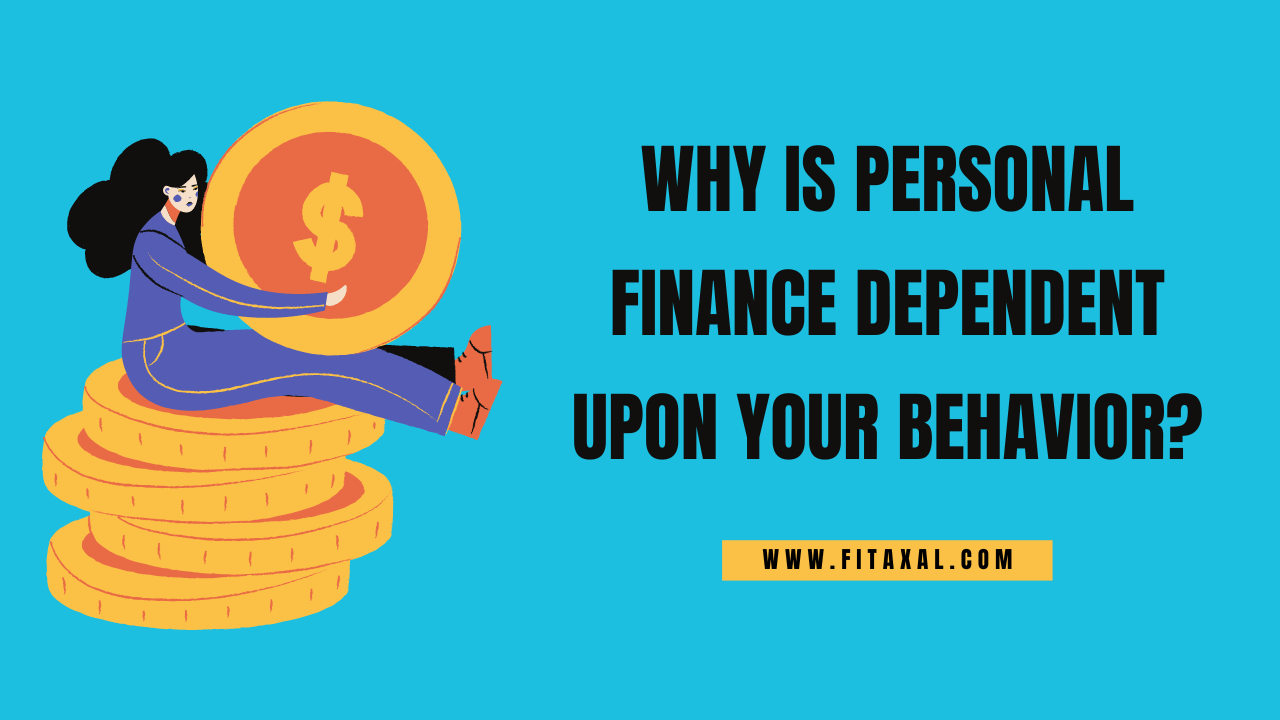We all have dreams – a serene retirement, a home in the countryside, luxury vacations, or simply being free from the vicious cycle of debts. The common thread that ties all these dreams together is why is personal finance dependent upon your behavior?. But, achieving financial stability is not merely about earning a high income or investing in the best stocks. It’s more intertwined with our behavioral patterns than we realize.
The Link Between Personal Finance and Behavioral Patterns
There is an established field of study known as behavioral finance that explores how individual behavior affects financial decision-making. Researchers in this field have found that our financial habits, whether they involve saving, spending, or investing, are deeply rooted in our behavior. It’s not just about how much money we earn, but more significantly, how we manage it.

Let’s take a simple example: saving for retirement. Two individuals with the same income, same expenses, and same retirement goals may end up with drastically different retirement funds. The difference lies not in their financial situation, but their financial behavior.
The Role of Emotional Intelligence in Financial Decisions
Money is an emotionally charged subject. Our emotions often drive our financial decisions, leading to financial outcomes that we later regret. For instance, the joy of an impulse buy might quickly be replaced by the stress of a maxed-out credit card.

However, emotional intelligence – the ability to understand and manage your emotions – can play a pivotal role in effective money management. By recognizing the emotional drivers behind our spending and saving habits, we can make more rational financial decisions.
How Cognitive Psychology Influences Personal Finance

Our cognitive biases also play a role in our financial behavior. For instance, humans are predisposed to prefer immediate rewards over delayed ones, a concept known as instant gratification. This bias can lead to excessive spending and inadequate savings.
Fortunately, knowledge of these biases can help us counteract their effects. By understanding the impact of cognitive psychology on personal finance, we can develop strategies to correct our financial behavior.
Building Better Financial Habits
Discipline and self-control are key components of financial behavior. They’re the force that helps us resist the temptation to splurge on a high-end gadget or eat out every night. They guide us to make decisions that align with our long-term financial goals.
The good news? These traits can be cultivated. By focusing on improving our financial discipline and behavior, we can change our financial trajectory. Just like physical fitness, financial fitness can be achieved with consistent effort and the right strategies.
Financial Literacy

Another critical aspect of financial behavior is financial literacy. A sound understanding of financial concepts, such as compound interest, risk diversification, and tax planning, can significantly influence our financial decisions.
Regrettably, financial literacy is often overlooked in our education system, leading to ill-informed financial behaviors. However, in this digital age, numerous resources can enhance our financial knowledge. Harnessing these resources can pave the way to better financial behavior and, ultimately, financial freedom.
Consequences of Poor Financial Behavior
The impact of poor financial behavior can be far-reaching – from financial stress to a compromised standard of living, and even relationship issues. But the silver lining is that it’s never too late to change our financial behavior.
Financial planning is a robust tool in this regard. By creating a budget, setting financial goals, and tracking our spending, we can cultivate better financial habits. Technology can be a powerful ally here, with numerous apps and tools available to aid in financial planning.
The Power of Positive Financial Behavior
The journey to financial freedom is more of a behavioral challenge than a financial one. Changing our financial behavior involves altering deep-seated habits, which is no easy task. However, with self-awareness, discipline, and the right knowledge, we can shape our financial behavior to support our financial goals.
Remember, your personal finance is a reflection of your behavior. By changing your behavior, you can change your financial future. The power to achieve financial freedom is in your hands. Embrace it, wield it, and create the future you dream of.
Understanding the Influence of Behavioral Biases on Personal Finance
It’s vital to comprehend that not all decisions we make about our finances are rational. Our choices are often influenced by behavioral biases – unconscious factors that distort our reasoning. Two key behavioral biases that impact personal finance are:
- Confirmation Bias: This is our inclination to pay more attention to information that confirms our existing beliefs, while disregarding information that contradicts them. In the context of personal finance, confirmation bias can cause us to make unwise investments because we ignore warning signs and only focus on the positives.
- Loss Aversion: This refers to the human tendency to fear losses more than we value gains. Loss aversion can hold us back from taking calculated risks that could boost our financial health in the long run.
Recognizing and mitigating the influence of these biases can drastically improve our financial decisions.
The Importance of Financial Behavior in Debt Management
Debt is a major component of personal finance that’s heavily influenced by our behaviors. From student loans to credit card debt, how we handle our obligations can make a big difference to our financial health.
Being proactive about paying off debt, prioritizing high-interest debt, and avoiding unnecessary borrowing are behaviors that can keep us out of the debt trap. Remember, staying debt-free is not just about earning more; it’s more about managing what you owe in a disciplined manner.
Financial Behavior and Wealth Accumulation: The Compound Effect
One of the most powerful concepts in finance is compound interest, which Albert Einstein reportedly called the “eighth wonder of the world.” It’s the principle that makes a consistent saving and investing behavior the cornerstone of wealth accumulation.
But here’s the catch – to reap the benefits of compounding, you need to start early and stay invested. That’s where the right financial behavior comes into play. Regular savings, disciplined investing, and patience are behaviors that can unlock the magic of compounding for you.
Financial Behavior and Your Relationship with Money
Our relationship with money, often shaped by our early experiences and societal influences, can significantly impact our financial behaviors. For instance, if you’ve grown up in a family where money was always tight, you might have developed frugality as a habit, or conversely, you might tend to overspend when you get access to money.
By understanding the root of our financial behaviors, we can work towards developing a healthier relationship with money. It’s not just about how much we earn or own, but how we view and handle our finances.
Impulse Control: The Key to Wise Spending
A crucial aspect of financial behavior is impulse control. In our consumerist society, it’s easy to fall into the trap of impulsive buying. However, every impulsive purchase is a missed opportunity to save or invest.
Practicing mindful spending – asking ourselves whether we truly need a product before buying it – can greatly improve our financial behavior and, consequently, our financial health.
Frequently Asked Questions
1. How does personal behavior affect financial outcomes?
Personal behavior significantly influences financial outcomes. Our spending, saving, and investment habits can determine our financial stability and future. A disciplined approach to money management often leads to favorable financial outcomes.
2. What role does behavior play in personal finance management?
Behavior is at the heart of personal finance management. Our decisions to save, spend, or invest are deeply influenced by our behavioral patterns, emotional intelligence, and cognitive biases.
3. Can changing your behavior improve your personal finances?
Absolutely! Changing behavior can significantly improve personal finances. By developing habits such as disciplined saving, prudent spending, and informed investing, one can drastically improve their financial situation.
4. What are some common behavioral mistakes in personal finance?
Common behavioral mistakes include impulse buying, not saving enough, relying on credit, not planning for retirement, and making investment decisions based on emotions.
5. Are there any effective strategies to change negative financial behavior?
Yes, there are effective strategies to change negative financial behavior. These include developing a budget, setting financial goals, improving financial literacy, and utilizing financial planning tools. The first step, however, is recognizing the need for change.
Also Read: MovierulzHD: Watch Movies & TV Series Online Free Movierulz [2023]
Conclusion: Why is Personal Finance Dependent Upon Your Behavior?
In conclusion, the significance of financial behavior in shaping our financial future cannot be overstated. Whether it’s saving for retirement, buying a home, or just living a debt-free life, the right financial behaviors can set us on the path to financial success. By understanding the psychology behind our financial decisions and cultivating positive financial behaviors, we can take charge of why is personal finance dependent upon your behavior?. Remember, the journey to financial well-being is not a sprint but a marathon. Every step, every decision, and every habit counts.
